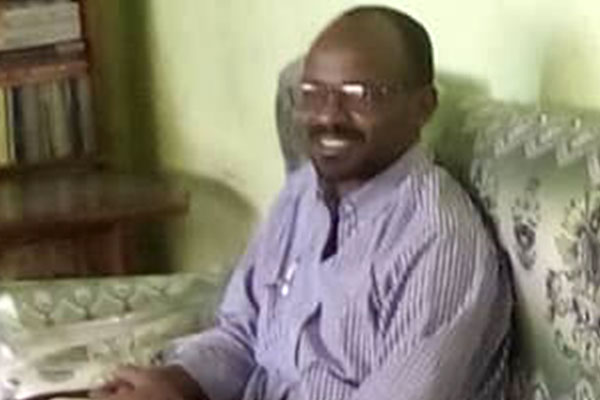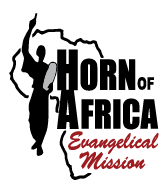
Tesfahun is married with two children. He is a Prison Ministry Coordinator in Arba Minch, and has four prisons under his supervision where hundreds of prisoners are detained. Tesfahun visits and teaches at the prisons frequently. He recruits leaders from the inmates and disciples them to be witnesses and make disciples themselves.
My Story
I am the fifth child in my family. Two of my brothers had given their life to Jesus earlier. They used to tell me the Good News and encouraged me to read the Bible. The Bible led me to understand I needed to invite Jesus into my life. I decided, I prayed, and I gave my life to Jesus.
I felt my calling into mission soon after I invited Jesus into my life. My spiritual hunger grew. l resigned from my job as a civil servant and joined a theological college. While there, I was praying and asking God to take me to unreached people anywhere He wanted me to serve him.
Sometime before my graduation I had a vision in which I saw many people whose hands were chained. I saw myself amidst those chained and I had a big book in my hand. I was telling them, “You are free and can go now.” I began breaking their chains and sending them away.
After graduation, my pastor told me the church was starting a prison ministry and he wanted me to serve the prisoners. He felt I was the right person. But I was not happy as I aspired to go to unreached people elsewhere. However, I saw the vision of people in chains again, and this time, I understood God was calling me for the prison ministry. My pastor was also encouraging me, so I agreed.
Unlike the communities outside, people in prisons respond to the Good News in greater numbers. We baptize up to 100 people every year. As converts are released, most return to their communities as missionaries. These ex-inmates become pastors, business people, and church planters–all actively involved in mission with God. We link ex-inmates with churches when possible. When converts go home to places far from our area, we give them letters to take to churches around their home to make sure they are spiritually connected with other local believers.
Community Life in Arba Minch
Orthodox is the main religion practiced in the area. Many also follow tribal religions, practicing witchcraft and sorcery.
The communities in the lowland areas of Arba Minch grow bananas and mangoes. The produce is sold to business people who take them to markets throughout the country. In most cases, business people come and collect fruit right from the field. People in this area enjoy better employment opportunities from the vegetable plantations. Water resources are available. Thus, people here are relatively well off and lead decent lives compared to those in many other parts of the country and even in the highland areas of Arba Minch.
Those living in the highlands face acute poverty. They cultivate products including wheat, teff, and barley. Most of the highlanders suffer from food shortages as the area has lost its fertility. Having big families with many children, parents find it impossible to send their children to schools. Women are highly burdened with all the family responsibility falling on their shoulders. They carry water, firewood, and other provisions from areas quite distant from their homes. Health problems are common in this community—especially among women and children. Men in this area have very little work and sadly they spend more time drinking traditional liquors.
Pray for Me
- Pray for prisoners to have receptive hearts to the Bible messages.
- Pray that I may have the grace and power of God to follow my vision and reach the unreached in the Arba Minch area.
- Pray for more workers here—especially for the women and children.
- Pray for new believers in the area who are often excluded from social activities. Some are also persecuted.
To adopt one of these 30 coaches, please email adopt@hornofafrica.org and ask about our adoption program. We would love to talk to you.
